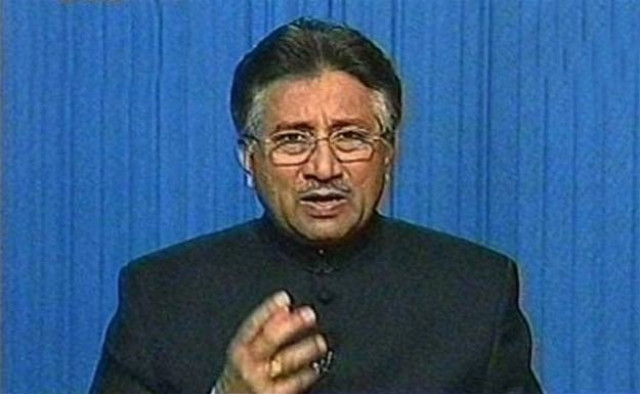Will Musharraf verdict change the political landscape?
Musharraf verdict has broken a long tradition of ignoring the high treason cases of the other three military rulers

The court has found Musharraf guilty on several counts, including abrogation of the Constitution, declaration of the state of emergency, and detention of Supreme Court judges. During the whole trial, Musharraf was represented by his lawyers.
Following the verdict, there was a spontaneous reaction from all and sundry. The opposing political parties welcomed the decision as a triumph of the principle of institutionalised accountability and democracy. Many called it a defining moment in the country’s evolution to genuine democracy.
The military, however, had a different approach. In a widely publicised statement, the military expressed its shock over the decision and asserted that legal formalities have not been fulfilled in this case. It also emphasised the deep pain and anguish in the military over the death sentence.
Some undisputed facts need to be examined here for a clearer perspective of the case.
Musharraf chose to leave the country knowing a case of high treason was pending against him. There was a clear intention. His deliberate absence for years was designed to provide an excuse for either continuous hearing adjournments or to attack a guilty verdict on the plea of not being heard.
There were long periods of time when Musharraf felt good enough for long walks and lived normally. He could have returned to the country for a personal appearance then.
The former military ruler moved in to topple a democratically-elected government in October 1999, taking advantage of his position as army chief. That act of subversion of the Constitution was clearly an act of high treason. Could such an act, anywhere in the world, be justified? Could anyone in the civilised world accept the argument that an individual who has served the country or fought wars be exempted from the harsh penalties of a crime only because he has held important offices? Could the declaration of emergency be justified on any grounds?
Accepting the argument that such an individual would be deemed above the law, would be absurd.
Even before he ousted a lawfully constituted government in 1999, Musharraf was clearly guilty of ordering a military operation in Kargil without the government’s knowledge or approval. Even on that score, he deserved to be punished according to the law. When the Kargil Operation backfired, he sought advice and help from a prime minister who was baffled by the revelations. The PM had to fly to Washington to seek US intervention in a hurriedly arranged meeting with president Clinton, who took time off his Christmas holidays to meet the Pakistani leader.
The Musharraf verdict has not broken any law. What it has broken is a long tradition of ignoring the high treason cases of the other three military rulers — Ayub Khan, Yahya Khan and Ziaul Haq.
But in the context of Pakistan’s history and the military’s dominating role, it is easy to conclude that little would change as a consequence of the verdict. It’s easy for an elected government to be removed on the charge of a PM not having accepted salary from his son’s company, but it is awfully difficult to implement court decisions affecting a former military chief. That is the dilemma this country has faced since its inception.
Whether the penalty is upheld or not, the judgment of the special court would be viewed as a landmark decision unprecedented in Pakistan’s history. The judiciary, after facing criticism of convicting a PM on charges such as non-receipt of salary from his son’s company, has swung back into action with a bang. The current PM, who publicly demanded a penalty for Musharraf on several counts, now faces a moment of truth. Will he succumb to pressure and expediency or will he choose the judicial norms of the country? Well, that remains to be seen.
Published in The Express Tribune, December 19th, 2019.
Like Opinion & Editorial on Facebook, follow @ETOpEd on Twitter to receive all updates on all our daily pieces.














COMMENTS
Comments are moderated and generally will be posted if they are on-topic and not abusive.
For more information, please see our Comments FAQ